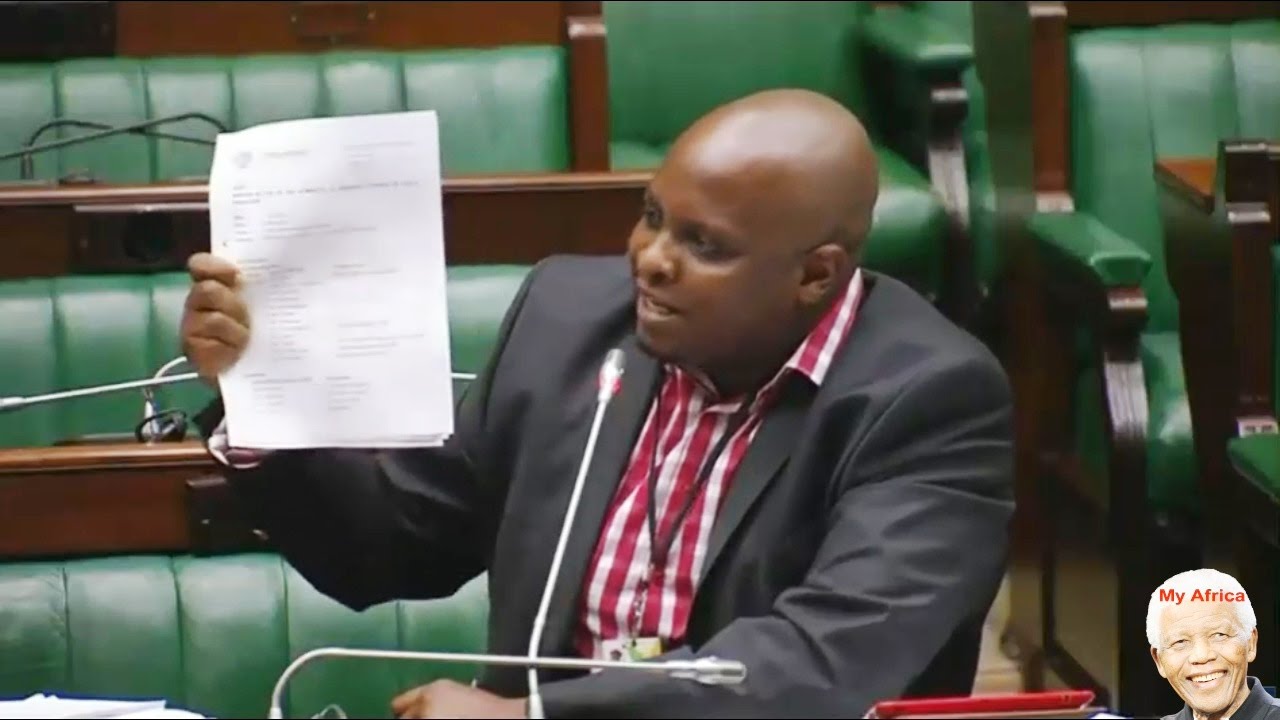The late night, early Friday morning interviews did little to faze the last candidates who were in the hot seat for the post of Public Protector. The 14 candidates were stripped bare as their secrets, criminal records and personal behaviour were laid out for all to judge during the interview process, which went on for 20 hours.
Nothing was too big or too small for the committee’s notice, including cellphone theft accusations, drunken driving charges and questions about security clearance. The second last candidate on the list, Advocate Muvhango Lukhaimane, who was interviewed just before 01:00, was put through the paces regarding a charge of common assault and dealing in liquor illegally.
She told the committee that she says she was never on the scene where the alleged selling of liquor (without a licence) took place. The charge came from a corrupt officer, she told MPs.
Like all candidates before her, she was questioned on her political affiliations by the EFF’s Floyd Shivambu.
“I was never a card carrying member of any political organisation. And I am not now. But that does not mean I am not aware politically aware,” she responded.
Candidates had to defend their past professional decisions, their mistakes and not declaring some of the glaring findings by Corruption Watch.
Tempers flared, candidates got flustered as MPs dug into every corner of their lives in search of the perfect candidate to replace Thuli Madonsela, whose term ends in October.
Association with ANC
Earlier in the day, contender Advocate Princess Cetywayo was interrogated over her association with the ruling party, and whether it would affect her work, should she get the job.
Cetywayo seemed reluctant to explain the status of her membership to the ANC.
She told the committee that she was not an active member of the ANC, which led to Shivambu and the DA’s Werner Horn asking for her to be more specific.
After a few explanations, which led to even more confusion with the members, she finally conceded that she was a fully paid up member of the ANC.
But this was only because she had paid her membership up to five years in advance, she said.
“I pay my membership like I pay my TV licence. Otherwise I forget. So I paid four years ago,” she said.
She had never been an employee of the ANC, she told the committee, and would be capable of being impartial.
Cetywayo, who worked as the head of the Office on Institutions Supporting Democracy in the past, was also asked about Madonsela’s Secure in Comfort report on Nkandla, and if she had been called on to give advice on it.
Almost all of the candidates were found to have a few skeletons in their closets, and each had to explain if they were still fit and proper for the job, despite the many infringements on their names.
All candidates were also grilled on their financial capacity to handle the Office of the Public Protector, as well as their apartheid era experience.
Last candidate grilled on work during apartheid
The last candidate, Professor Bongani Majola, who was interviewed at 02:00, detailed his international experience in dealing with large amounts of funds.
He said he had never mishandled or misplaced money during his long career with the UN. He told the committee he never made a mistake he never intended to keep.
Majola was nominated for the position in 2002, and declined it.
ANC MP Bongani Bongo asked him what made him think he was ready for it now.
Majola said he had declined his nomination in 2002 because he had already signed an acceptance of employment with Kofi Annan.
“It would have been difficult to then withdraw.”
Shivambu asked Majola if he had then worked for the apartheid government and had left to work in Rwanda during the dawn of democracy.
He questioned how “can we employ someone who worked for apartheid government? Maybe you even taught apartheid laws?”
Majola said it was true that he had worked for the apartheid government when he was a prosecutor.
“We had challenges that where I lived, people still assaulted each other, stole cattle. Black people against black people. We had no jurisdiction over other races then,” he said.
He said the fact that they were under apartheid did not mean they would ignore cases.
“We couldn’t say sorry, you were assaulted but we can’t do anything.”
Majola said he was proud that when he walked in the streets of Pretoria he met former students who were advocates and judges.
This is from his teaching days in the apartheid universities.
“We did teach within apartheid universities but it was what we did that mattered. We did the best that we could,” he said.
During the cause of the interviews, the candidates were questioned on the Nkandla report and subsequent court judgments, Sudanese president Omar al-Bashir’s visit to South Africa, and on security clearance.
Current deputy public protector Kevin Malunga’s citizenship was brought into question after a letter from State Security said he did not have the top secret clearance required for the job.
The committee resolved to get more answers from State Security regarding the status of his clearance.
The interviews were wrapped up just after 03:00.
[Source: News24]





 WhatsApp us
WhatsApp us 

